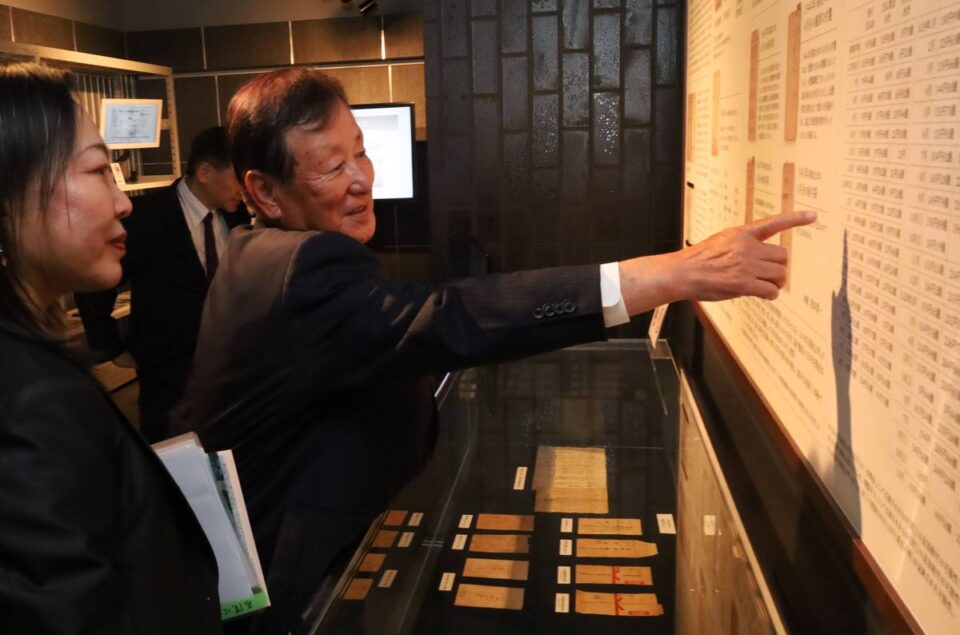How do Russian and Chinese “spies” approach you? Yu Inamura, former investigator with the Public Security Bureau of the Metropolitan Police Department and representative director of the Japan Counter Intelligence Association, said, “They ask for directions and then make conversation with you, saying, ‘We went to the same alma mater. If you feel a sense of familiarity with them and have dinner with them, you will be drawn further and further into their lives. (Part 2 of 2)
Considering espionage from the spy’s point of view
In the previous article, we explained from the viewpoint of the spy’s target. In this article, we will attempt to explain from the viewpoint of a spy (i.e., attacker). This is because, as with penetration testing in cyber security, it is possible to understand an attacker’s thinking from the attacker’s point of view.
Let us look again at the case (Yomiuri Shimbun Online, July 28, 2022) mentioned in the previous article, in which Russian Trade Representative officials pretended to ask employees of semiconductor-related companies for directions and invited them to go out for a drink. Probably the majority of our readers would think, “Why would he carelessly go out for a drink after being asked for directions? Normally, you would not go there. In reality, however, this method is not a small entrance to espionage activities in Japan.
Why are they deceived? Let me explain the mechanism from a spy’s point of view.
Suppose Mr. Z, a spy from a certain country, receives an order from his home country as follows.
In Japan, several companies are planning to establish a new company in order to build a mass-production infrastructure for next-generation semiconductors with short time-to-market (TAT). Collect information on the company’s establishment trends and sensitive technologies.
- target selection
Targets are employees (including board members) of the semiconductor-related departments of the company from which the new company is to be established, or family members or acquaintances of employees or other persons who may be involved in the establishment of the new company (not necessarily the main department in charge, but legal and other personnel may be considered as well). Candidates may also include people from other industries who have knowledge of the trends, secretaries, and family members of such people.
While it is obviously better if the target is someone who has direct access to the information, it is also possible to follow indirect personal connections to reach the target. They may also be approached by family members. For example, a wife may be active in a community where her husband is not known, but she may be able to access his device if the need arises. Another means is to incorporate the wife from the male-female relationship.
Without attempting direct contact with any of the above, one can set a hook in the vicinity of a company building where the person frequents (simply ask for directions and follow the person who answers in a friendly manner). In fact, there are many such activities (i.e., recruiting activities) by spies. - target investigation/evaluation
Once the target is determined, thoroughly research the person. For example, what if a spy has been watching your activities for almost a year? Your shopping and out-of-town activities, your hobbies and interests, your health, and your relationship with your family would all be understood. Perhaps your favorite restaurants, friends, and sexual preferences and proclivities would also be easily understood.
Then, an assessment is made as to whether or not the person is a useful target. (In the case of Chinese honey traps, the target may be investigated over a period of several years.) - approach/contact
Now comes the approach/contact. As in the previous example, the target is a member of the semiconductor development division of the company.
One day, as the target was leaving the company, Mr. Z, with a friendly and troubled look on his face, asked, “Excuse me, how do I get to the XX station? Mr. Z looked very friendly and troubled, and asked in fluent Japanese, “Excuse me, how do I get to the XX station?
Naturally, the target will kindly give directions to someone in need. The important point to note here is that Mr. Z has done his research on the target and knows 100% how to get home after leaving the office. In other words, Mr. Z will ask for directions to the station that the target uses to get home. This way, he can talk with the target while walking with him from the office to the station.
Magic keywords to make the target drop his/her guard
On the way to the station, the conversation is led by the amiable Mr. Z, who engages in casual chitchat. Eventually, Mr. Z says, “Actually, I studied at C University for a while. Of course, the University of C was a target university that he had researched in advance. Of course, University C was the target’s alma mater, which he had researched beforehand, and Mr. Z showed the target an unexpected similarity.
Why did Mr. Z say this? The theory is simple. What if your stranger was from your hometown? What if they went to the same alma mater? You may have had an experience that you felt a sense of familiarity with the person and had a lively conversation with him or her because of unexpected common ground. Mr. Z, who knows his target very well, aims to do just that.
When Mr. Z tells the target that he is doing research on semiconductors in Japan, the target is excited to talk about semiconductors as well. At this point, it is no exaggeration to say that Mr. Z’s approach to the target was successful.
These situations can be staged only because Mr. Z has carefully researched the target, and the timing and the creation of the environment are at his disposal.
Mr. Z then offers a business card with a false name, or if the target is someone who is not wary of Mr. Z’s country and feels comfortable with his official status, a business card with the status of a diplomat, etc., and succeeds in exchanging contact information with the target. - afterwards
The target is contacted later by Mr. Z and says, “I would like to learn about the basics of semiconductors. Would you like to have a drink? Although Mr. Z naturally has basic knowledge of semiconductors, it is a common practice for spies to start with a risk-free exchange of information at the beginning of the dinner with the target and gradually escalate their demands.
When the target is shown a low attitude by Mr. Z, “Let me study,” the target feels a kindness to teach him, and agrees to the dinner. (This may be partly due to the target’s desire to learn about the semiconductor situation in Mr. Z’s country.)
At the first dinner, the two parties discuss basic knowledge of semiconductors, and Mr. Z presents the target with local specialties and tea cakes that he does not mind receiving as a souvenir. This was to get the target accustomed to giving and receiving money and goods.
As the target continues to receive gifts over dinner, the gifts change from sweets to gift certificates to cash, and Mr. Z’s requests are upgraded to information that is not publicly available.
At this point, it is already too late for the target to be alert. If the target feels guilty about the fact that he has received money and tries to say no to Mr. Z, “I can’t give you any more ……,” Mr. Z will ask him, “Do you remember how much I gave you? I can’t have you telling me you want to end the relationship now,” implying that he was an “accomplice to bribery. The target is even frightened by Mr. Z’s sharp gaze, and hesitates to break off the relationship.
Thus, whether or not the target is alert, he or she will “contribute” to the spy for several years or decades. Either the target will meet the high demands of the spy while being intimidated by the spy, or the target will be arrested by the agency at some point and discarded like rags by the spy. If arrested, they could lose their jobs or even their homes. They may be forced to move out of their homes, be unable to find new employment, and face a miserable end to their lives.
What if a family member is the first target?
The above is a typical example of the process by which a spy takes in a target. Although we have omitted some steps, we hope that you have realized the familiarity of the modus operandi. More to the point, if you can imagine if your family member became the first target in order to get close to you, you can imagine the horror of the situation.
Initial Measures Against Spies
Now, what are the initial responses to the typical espionage described in this article?
If only large defense-related companies are aware of the niche threat of espionage, and large and small companies in other industries are indifferent to it, it will be much easier for spies to attack. Think back. The technology and information that spies want is not only in the hands of certain large companies, but also within their networks. The target is not only the “main target.
It is also said that Japanese technology is supported by small and medium-sized enterprises (SMEs). Compared to large corporations with ample funds, small and medium-sized enterprises (SMEs) may not be able to allocate a large budget for countermeasures against espionage.
Therefore, it is simple and effective to first learn the tactics of spies and raise awareness of defensive measures as an initial response. Here, it is important to be careful not to be overly sensitive to “country names” and not to have an exclusive mindset. The countries mentioned in this article do not have excellent relations with Japan in light of the current international situation, and they are engaged in espionage activities at the will of the state. Nevertheless, most of the foreigners in Japan are good-hearted people.
Please let us hope that through you, our readers, counter-intelligence awareness will be raised in Japan, and that this will be the beginning of the formation of a counter-intelligence community originating from the private sector.
Yu Inamura CEO, Japan Counter Intelligence












